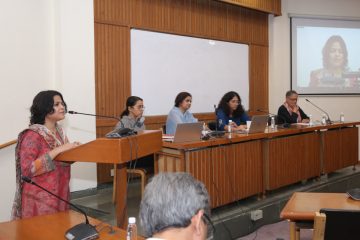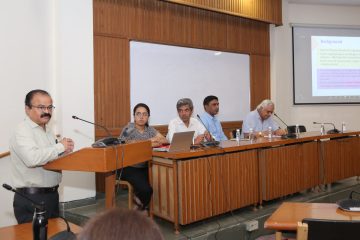Round Table on Sickle Cell Disease: Some Photographs

Sama organised a one-day round table on 2nd July 2024 in Delhi, titled “Interrogating Sickle Cell Disease as a Public Health and Reproductive Justice Issue,” to deliberate on some critical issues on sickle cell disease (SCD) and share experiences from its field visits to Chhattisgarh for guidance on its future work on SCD. Here are some photographs of the round table. Continue reading





